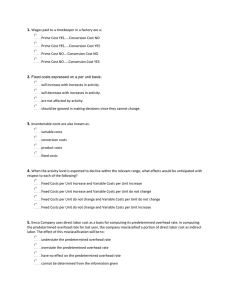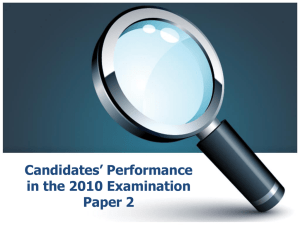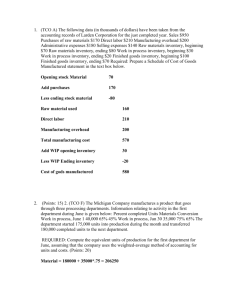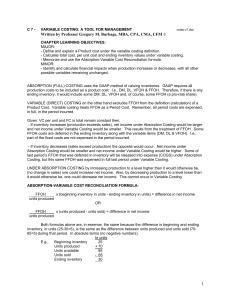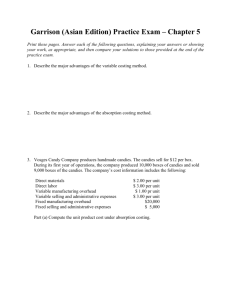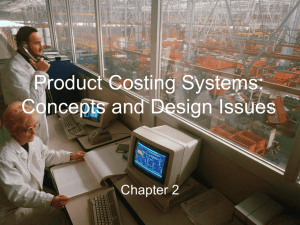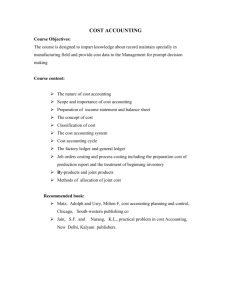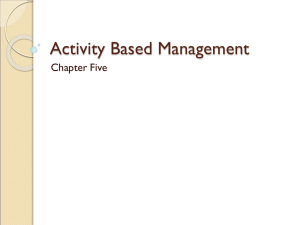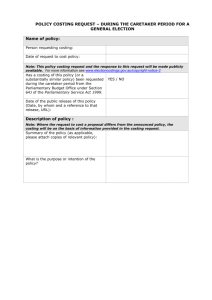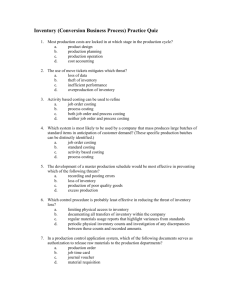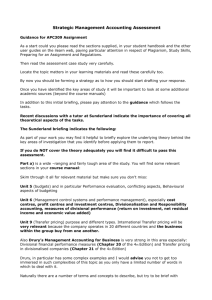C:\AAWP\PRIN\KIESO\8th Edition\Note Taking Guide
advertisement
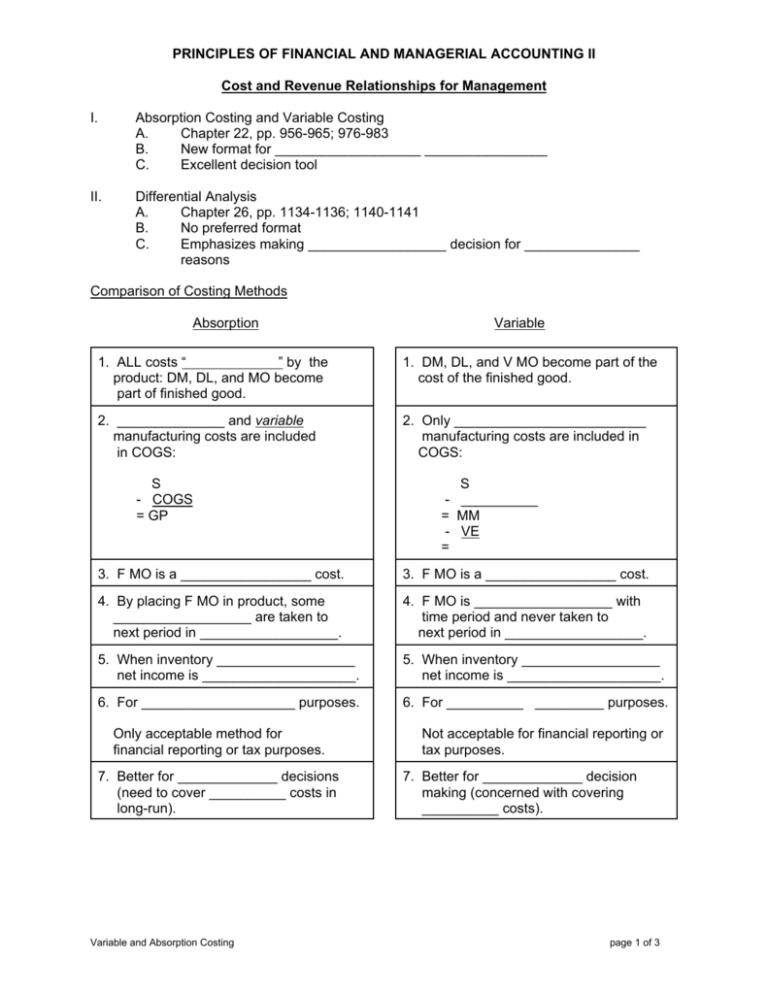
PRINCIPLES OF FINANCIAL AND MANAGERIAL ACCOUNTING II Cost and Revenue Relationships for Management I. Absorption Costing and Variable Costing A. Chapter 22, pp. 956-965; 976-983 B. New format for ___________________ ________________ C. Excellent decision tool II. Differential Analysis A. Chapter 26, pp. 1134-1136; 1140-1141 B. No preferred format C. Emphasizes making __________________ decision for _______________ reasons Comparison of Costing Methods Absorption Variable 1. ALL costs “ ” by the product: DM, DL, and MO become part of finished good. 1. DM, DL, and V MO become part of the cost of the finished good. 2. ______________ and variable manufacturing costs are included in COGS: 2. Only _________________________ manufacturing costs are included in COGS: S - COGS = GP S - __________ = MM - VE = 3. F MO is a _________________ cost. 3. F MO is a _________________ cost. 4. By placing F MO in product, some __________________ are taken to next period in __________________. 4. F MO is __________________ with time period and never taken to next period in __________________. 5. When inventory __________________ net income is ____________________. 5. When inventory __________________ net income is ____________________. 6. For ____________________ purposes. 6. For __________ _________ purposes. Only acceptable method for financial reporting or tax purposes. 7. Better for _____________ decisions (need to cover __________ costs in long-run). Variable and Absorption Costing Not acceptable for financial reporting or tax purposes. 7. Better for _____________ decision making (concerned with covering __________ costs). page 1 of 3 Comparison of Absorption Costing and Variable Costing The Rainey Company began operations in January of the current year. During the first year of operations the company manufactured 50,000 units, of which 44,000 were sold at $40 per unit. Variable manufacturing costs were $12 per unit, and fixed manufacturing overhead was $260,000. Variable selling and administrative expenses were $4.50 per unit sold, and fixed selling and administrative expenses were $150,000. Instructions: (1) Prepare an absorption costing income statement, and (2) prepare a variable costing income statement in good form. (3) Calculate and explain the difference, if any, in the two net income amounts. RAINEY COMPANY Income Statement -- VARIABLE Costing For the Year Ended December 31, xxxx RAINEY COMPANY Income Statement -- ABSORPTION Costing For the Year Ended December 31, xxxx SALES (__________ units x $_____) $ SALES (________ units x $______) $ Cost of Goods Sold: Variable Cost of Goods Sold: Variable Cost of Goods Manufactured (_______ x $______) Fixed Manufacturing Overhead Cost of Goods Manufactured Less: Ending Inventory ( _______ units x $________) $ Variable Cost of Goods Manufactured (_________ x $______) 260,000 $ $ Less: Ending Inventory (__________ units x $______) COST OF GOODS SOLD VARIABLE COST OF GOODS SOLD _______________________ ______________ $ Variable Selling and Administrative Expenses GROSS PROFIT $ _______________________ ______________ Selling and Administrative Expenses: Variable ($______ x ______ units) Fixed INCOME FROM OPERATIONS $ Fixed Costs and Expenses: Manufacturing Overhead Selling and Administrative 150,000 $ 260,000 150,000 410,000 $ INCOME FROM OPERATIONS Note: This example is for instructional purposes only; for homework follow the examples in the textbook. Variable and Absorption Costing $ page 2 of 3 $ Cost and Revenue Relationships for Management (cont’d) (3) Calculate and explain the difference in the two net income amounts. Net Income – Absorption $ Net Income – Variable Difference Explanation In total: Change in Ending Inventory – Absorption (EI - BI) $ Change in Ending Inventory – Variable (EI - BI) Difference Per Unit: Ending Inventory – Absorption $ Ending Inventory – Variable Difference per Unit x Change in Number of Units in Inventory (EI - BI) Difference What is the ________________________ Variable and Absorption Costing ? ___________________ = page 3 of 3

